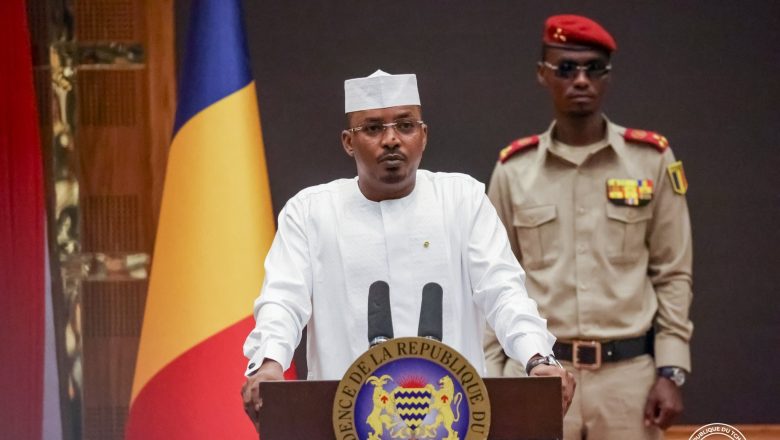Chad’s president unveils visionary decentralisation plan in landmark national seminar

Chad’s President addressed the nation on Monday during the launch of the National Seminar on Decentralisation, a historic and strategic step toward reshaping governance and strengthening local institutions across the country.
“I would like, at the beginning of my remarks, to give thanks to God. May He be praised for His infinite favours and blessings, and may He watch over our country and ease its path toward decentralisation,” the Head of State said in his opening address.
He spoke with conviction, describing the seminar as “a profound turning point” and the decentralisation initiative as a “concrete expression of the people’s will,” following the constitutional referendum aligned with the resolutions of the Inclusive and Sovereign National Dialogue.
“Our new legal and institutional framework reflects lessons from the past,” the President explained.
“It is not just an administrative reform, but a reimagining of how power and responsibility are shared, ensuring decisions are made closer to local realities.”
The reform, he stressed, aims to empower autonomous communities with authority over local development, guided by principles of transparency, equity, and innovation.
He noted that the roles of state representatives — now titled “General Delegates of Government” rather than Governors — have been redefined to encourage partnership rather than oversight.
“The representatives of the State must not interfere in the daily management of autonomous communities,” he insisted. “They must respect autonomy and support local leaders in exercising their duties.”
He called on local elected officials to act with integrity and prioritise public interest, urging collaboration with State authorities based on mutual trust and clear delineation of responsibilities.
“Our approach rests on progressive and concurrent transfer of competencies and resources.
We will move step-by-step, guided by each community’s readiness and resource availability,” he said, emphasising the establishment of a territorial civil service to decentralise public employment and services.
To support the transition, the government will create training frameworks and define a realistic timeline, alongside a financing strategy grounded in strengthened local taxation, national solidarity, development funds, and public-private partnerships.
“Transparency in the management of resources is a non-negotiable imperative,” he declared, highlighting the role of digital tools and citizen participation mechanisms such as neighbourhood councils and participatory budgeting.
The President warned against poor governance and internal conflicts, insisting on accountability, honesty, and service to citizens.
“Let me be clear: I will not tolerate any misuse of the resources of autonomous communities,” he stated firmly.
“The Court of Auditors, the Anti-Corruption Authority, and the judiciary must fully assume their roles to ensure sound local governance.”
In closing, he affirmed his belief that decentralisation is “a collective national project,” beyond political or ethnic divides. He proposed a mid-term national review to assess performance and make necessary adjustments, calling for a concrete roadmap and strong implementation mechanisms.
“This is a pivotal moment in our country’s history,” the President concluded. “By bringing decisions closer to citizens, valuing local initiative, and strengthening responsibility, we are building a more democratic, effective, and united Chad.
About The Author
dailymailafric
I am an avid African news observer, and an active member of Daily Mail Africa.
I’m Passionate about staying informed on diverse topics across the continent,
I actively contribute to publishing on political, economic and cultural developments in Africa.



